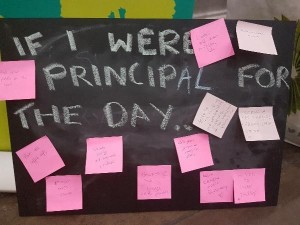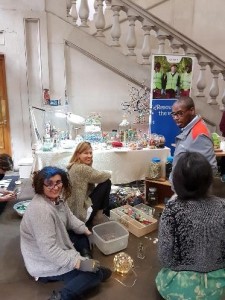If you have looked at the bins at King’s recently, you might have noticed our new recycling guides. King’s is committed to achieving a recycling rate of 70%, and our new recycling guidelines are a small part of the wider changes that have been happening behind the scenes in the last months.
Throughout this summer, our new waste contractor Simply Waste Solutions will start collections at all campuses, beginning with Denmark Hill this week. Simply Waste Solutions will replace several current contractors, and help us deliver a more consistent service across King’s. This means no more differences in what can/cannot be recycled depending on campus!
In addition to the new bin signage, we have created a Waste A-Z to help make recycling as easy as possible. This guide can be found at internal.kcl.ac.uk/recycling. If you would like to see additional resources, or have questions about other waste types, please let us know!
Our contract with Simply Waste Solutions means we will now be able to tackle more waste streams. One of these is food waste, which is currently only separated at Strand. With the new contract, King’s Food will separate their kitchen waste at all campuses, and send the waste to anaerobic digestion. In addition to this, we will be able to extend our coffee cup recycling programme to more campuses.
The Maughan Library already has this programme in place as a result of taking part in the Square Mile Challenge, and other campuses can expect to see coffee cup bins pop up in the next months. Usually, only 1% of disposable coffee cups in the UK are recycled. With the Simply Cups programme, we can collect cups and Simply Cups will turn them into new products. So don’t be surprised if your coffee cup makes its way back to King’s looking very different (e.g. a canteen tray or pen).
So, what happens to our waste?
As long as it is not contaminated, everything in our recycling bins will be given a second life. Paying attention to the recycling guidelines is important, as recycling bags may be classed as “contaminated” if they contain non-recyclable waste. Contaminated bags may end up being rejected, so it is important to pay attention to what goes in the bin. A common doubt regarding recycling is how clean items like plastic pots should be when going in the recycling bin. Things like yoghurt pots and plastic bottles should be empty and not contain any food or liquids, but they don’t need to be spotlessly clean. A rule of thumb is that if you would happily stick your hand in the recycling bin after binning your item, and it could come out clean and dry, it’s good to go in recycling.
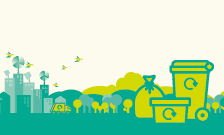 Our food waste goes to anaerobic digestion. This means that it will be put into sealed containers and broken down by natural micro-organisms. At the end of this progress, two products remain: biogas, to be used as fuel to generate renewable energy; and a nutrient-rich digestate, used as fertiliser.
Our food waste goes to anaerobic digestion. This means that it will be put into sealed containers and broken down by natural micro-organisms. At the end of this progress, two products remain: biogas, to be used as fuel to generate renewable energy; and a nutrient-rich digestate, used as fertiliser.
Glass waste is sent to plants where it can be washed and sorted into colours. It is then melted and moulded into new products. As glass does not degrade through the recycling process, as paper fibres do, it can be used again and again!
The remaining general waste is not sent to landfill, but incinerated in energy-from-waste plants. The created heat is used to generate electricity (fed into the National Grid) and to heat homes. The remaining ash is collected and used as a material for road construction.
This means that with Simply Waste Solutions, we are able to send zero waste to landfill for all of our general, bulky and food waste.
Fun fact: On a recent visit, we met Simply Waste Solutions’ very own chief mouser – a former stray who just turned up and moved in one day. Here he is, roaming the waste yard and making sure everyone recycles properly.

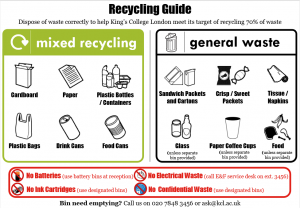
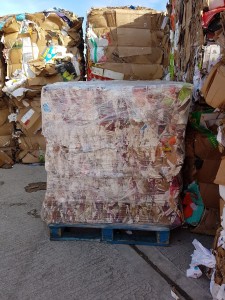

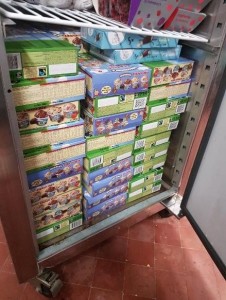

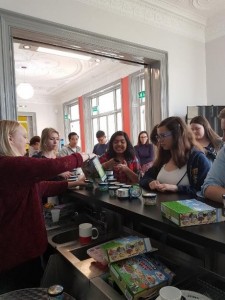
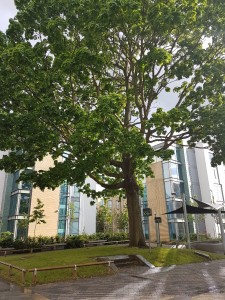
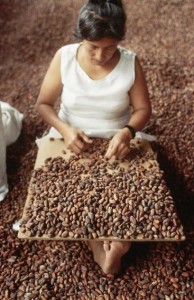 With more and more companies now offering Fairtrade chocolate, Easter is the perfect opportunity to support the scheme. The
With more and more companies now offering Fairtrade chocolate, Easter is the perfect opportunity to support the scheme. The  ood, Easter can also be a great time to enjoy the (hopefully) warm weather! With the stressful exam period coming up, making use of green spaces can help clear your mind – even if you don’t have time for extended walks, you could move your workspace outside for a few days. There are plenty of green spaces around London (e.g. Richmond Park, Southwark Park, Primrose Hill, Hampstead Heath etc.), and if you want to get your hands dirty, you can try out some
ood, Easter can also be a great time to enjoy the (hopefully) warm weather! With the stressful exam period coming up, making use of green spaces can help clear your mind – even if you don’t have time for extended walks, you could move your workspace outside for a few days. There are plenty of green spaces around London (e.g. Richmond Park, Southwark Park, Primrose Hill, Hampstead Heath etc.), and if you want to get your hands dirty, you can try out some 